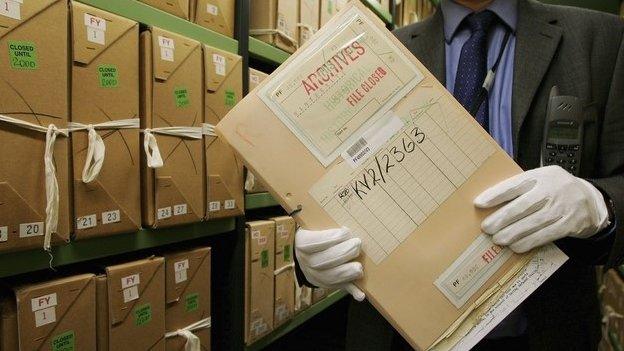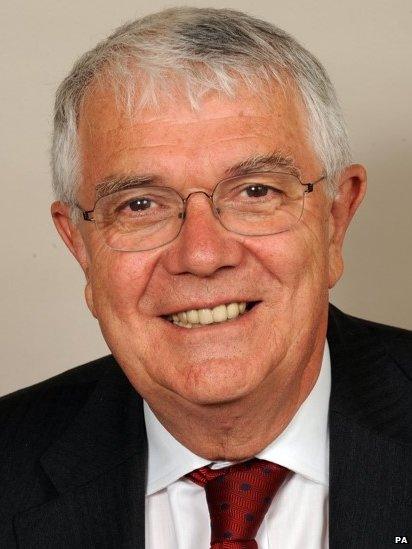Review of Freedom of Information laws announced
- Published

A review of Freedom of Information laws has been launched amid concerns within government that "sensitive information" is being inadequately protected.
Ex-civil servant Lord Burns will head the cross-party review, with input from senior Tory and Labour politicians.
It will look at whether current disclosure rules, in force since 2005, are working in the public interest.
FOI campaigners said ministers' desire for secrecy would conceal "bad decisions and policy mistakes".
The passing of the Freedom of Information Act in 2000, which gave anyone the right to access recorded information held by government and other public sector bodies, is regarded by many as one of the landmark achievements of the last Labour government.
It obliged public authorities in England, Wales and Northern Ireland, and UK-wide authorities based in Scotland, to publish certain information about their activities.
'Safe space'
But former prime minister Tony Blair has since described the law as one of his "biggest regrets", arguing it has had the effect of denying civil servants a "safe space" to properly advise ministers for fear their conversations will later become public.
Conservative ministers have expressed concerns that exemptions included in the original law, including those relating to policy formulation, and the exercise of a ministerial veto in the public interest, have been eroded by recent tribunal and court judgements - including the Supreme Court's decision to quash the ban on the release of correspondence between the Prince of Wales and ministers.

Lord Burns will head up the review
Downing Street said the review, to be completed by November, would weigh up whether there was the right sort of balance which fully facilitated policy development, implementation and frank advice.
It will be headed by Lord Burns, a crossbench peer who was the most senior civil servant in the Treasury between 1991 and 1998 and is currently chairman of Channel 4.
Among those sitting on the independent commission will be Lord Howard, who was Conservative leader when the law came into effect and Jack Straw, the former foreign and justice secretary who helped draft the original law.
Other members will include Lib Dem peer Lord Carlile of Berriew, the former Independent Reviewer of terrorism legislation, and Dame Patricia Hodgson, chair of the broadcasting regulator Ofcom.
The Cabinet Office, which has assumed departmental responsibility for the issue from the Ministry of Justice, said the review would examine, among other things:
The balance between transparency, accountability and the need for sensitive information to have robust protection
Whether the need for a "safe space" for policy development and frank advice was being fully recognised
The balance between the need to maintain public access to information and the burden of the Act on public authorities
"We fully support the Freedom of Information Act but after more than a decade in operation it is time that the process is reviewed to make sure it's working effectively," said Cabinet Office minister Lord Bridges.
'Kept secret'
The review was announced on the same day as a FOI request by the campaign group Reprieve revealed that British military personnel have taken part in bombing raids against Islamic State targets in Syria as part of missions conducted by allied forces.
The Campaign for Freedom of Information said the existing law already provided "adequate protection" for policy advice and MPs on the Commons Justice Committee had reviewed the act as recently as 2012 and found it was working well.
If the existing FOI exemptions for policy formulation were made "absolute", rather than subject to a public interest test, it said this would mean key information would only become public 20 years later when official papers were released.
"Ministers want certainty that policy discussions will not only take place in secret but be kept secret afterwards," its director Maurice Frankel said.
"They don't like the fact that the Act requires the case for confidentiality to be weighed against the public interest in disclosure.
"The Information Commissioner and Information Tribunal give substantial weight to the need to protect ongoing government discussions and the frankness of future exchanges. But after a decision has been announced they sometimes order disclosure where exchanges are anodyne, the material is old or the case for openness is overwhelming.
"If that balancing test is removed mistakes, bad decisions and policy failures caused by deliberately ignoring the evidence will be concealed for 20 years."
- Published13 May 2015

- Published14 May 2015

- Published13 May 2015